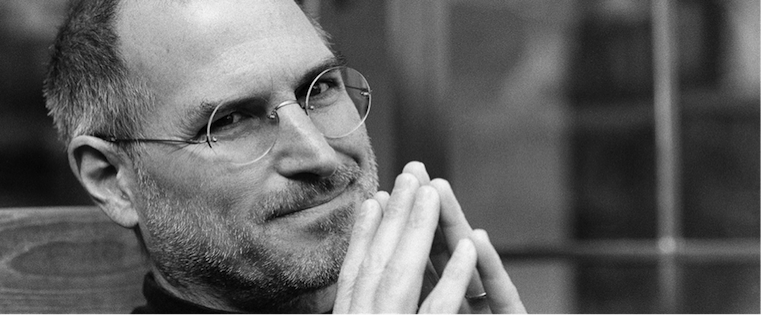

What Salespeople Can Learn From Steve Jobs
Originally Posted on Hubspot Sales Blog
A few weeks ago Tim Cook, CEO of Apple, gave an interview about the late Steve Jobs as someone quite different than the media represented him. Cook called Jobs “kind, patient, and human” in a Fast Company article titled “The Steve Jobs You Didn’t Know.”
Reading this piece made me recall the time I spent a few years ago studying Steve Jobs’ marketing and sales insights. Jobs was one of the greatest business visionaries of all time, and I discovered some interesting lessons that every salesperson can learn from.
Here are just a few lessons inspired by the late and great Apple founder which can help improve your sales skills.
1) Make your demo a remarkable experience.
Many reps just ramble off their product’s features during demos. But who is this interesting to? Certainly not to the prospect, and probably not even to the rep giving the presentation.
Although Steve Jobs’ demos included features, they made the device seem like more than the sum of its parts. His presentations addressed the impact of a product on its audience, and forged an emotional connection between buyers and the latest Apple product. In case you need a refresher, check out his demo of the original iPod in 2001:
Remember that people buy emotionally. They buy to eliminate pain or because they really, really want something. So your product demo should focus on one goal or the other.
2) Sell different!
Apple’s landmark 1997 “Think Different” campaign was unique in many ways. Steve Jobs deliberately didn’t use correct grammar (“Think Differently”) because he wanted to deliver a message that was completely divergent from what prospects would be expecting.
A sales rep should have a new angle, new insight, or new value-add to share with potential customers. Take “Think Different” and make it “Sell Different.” Be unique. Stand out. Keep the focus on helping your prospects, but strategize a totally fresh way to do so. This will differentiate you from your competitors or the status quo — often the biggest competition of all.
3) Don’t compete on price.
Jobs never let Apple compete on price, but instead on experience. The iPod and iPhone weren’t always the cheapest options once knock-offs hit the scene, but they were the best designed and most emotionally desirable.
Reps would be wise to take a lesson from this strategy. Competing on price is a race to the bottom. No matter how cheap your company’s products, there’s always bound to be a competitor willing to go lower. Don’t lock yourself into a vicious cycle of discounting — sell on value and emotional worth, not money.
Oh, wait …“there is one more thing:”
4) Always leave with something memorable.
“One more thing” was Steve Jobs’ signature demo-ending phrase. He always saved one last surprise for the final minutes of his presentation, thus leaving his audience wanting more.
The final thought is the cherry on top of your demo — the “magic moment” in sales. Make sure to end on an attention-grabbing takeaway that your customer should ruminate on after you hang up the phone or part ways. Here are some examples of final thoughts that pack a punch:
“Our service just saved X customer $50,000.”
“We use the product internally and it’s generated 50 new customers.”
“According to X rating site, we have the highest customer satisfaction in the space.”
A demo should be an engaging experience that pulls customers in and gets them emotionally invested in your offering. Channel the energy of Steve Jobs to transform the way you sell and present to your customers, and never bore prospects again.
